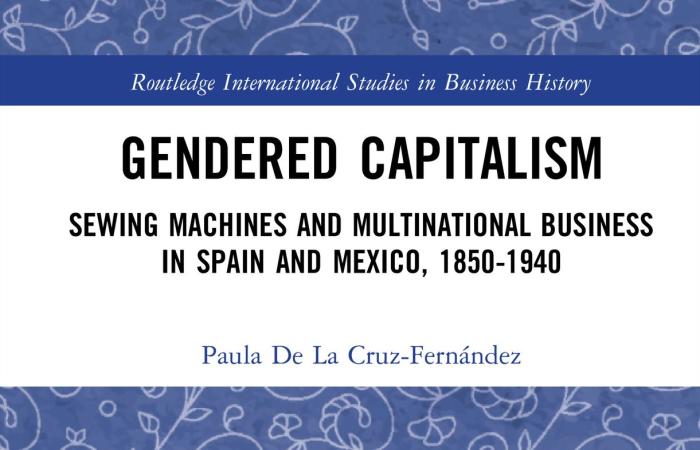
Gendered Capitalism: Sewing Machines and Multinational Business in Spain and Mexico, 1850–1940
Paula A. de la Cruz-Fernández’s book Gendered Capitalism: Sewing Machines and Multinational Business in Spain and Mexico, 1850–1940 explores how the gender-specific cultures of sewing and embroidery shaped the US Singer Sewing Machine Company’s operations. Using the cases of Spain and Mexico, Fernandez details how the cultural, everyday realm of female use of sewing machines for family or business purposes influenced corporate organization and marketing strategy. In those places local agents, both men and women, developed and expanded Singer’s selling system such that this American-based multinational company assumed a domestic guise because of its focus on the private sphere of the home. In this way Fernandez genders the corporation, especially the intersection between feminine domesticity, commerce, and corporate strategy.
Paula A. de la Cruz-Fernández is the Digital Editor of the Business History Conference and Digital Heritage Manager at the University of Florida. She received her Ph D in history from Florida International University in 2013.
The audio only version of this program is available on our podcast.
